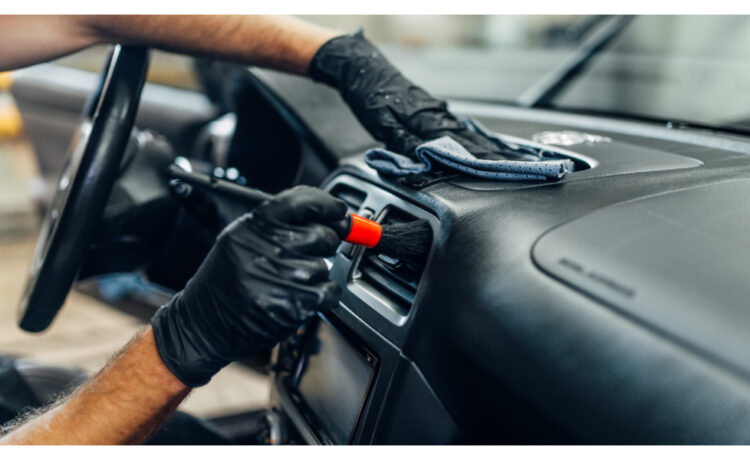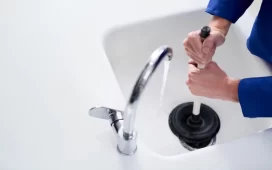Your car’s exhaust system does more than just expel fumes—it directly impacts fuel efficiency, engine power, and overall vehicle longevity. When issues arise, whether it’s a clogged catalytic converter, rusted pipes, or excessive carbon buildup, you face a critical decision: do you clean the system or replace it entirely? Many vehicle owners opt for exhaust system cleaning services as a cost-effective solution to remove buildup and restore efficiency before considering a full replacement.
Making the wrong call can mean wasted money or long-term engine damage. Choose wisely, and you will extend your car’s life, improve fuel economy, and avoid unnecessary expenses. Let’s break it down so you can make an informed decision that protects your vehicle, your wallet, and your peace of mind.
Your Exhaust System: What’s Happening Underneath?
Your exhaust system operates under extreme conditions—heat, moisture, and road debris take their toll over time. This exposure leads to some unavoidable problems:
- Carbon Buildup: Soot and unburned fuel clog essential components, restricting airflow and reducing efficiency.
- Rust and Corrosion: Moisture, particularly from short trips, leads to rust formation, which weakens pipes and mufflers.
- Clogged Catalytic Converter or DPF: Blocked components cause a drop in performance and increase emissions.
- Leaks and Cracks: Even minor leaks can let dangerous fumes seep into your cabin and negatively impact engine performance.
These issues do not necessarily mean your exhaust system is beyond repair. Sometimes, a thorough cleaning is all it takes to restore performance—but other times, replacement is the only real fix.
Exhaust Cleaning: A Budget-Friendly Fix That Works
If your exhaust system is not physically damaged but is clogged with carbon and debris, a deep clean can work wonders. The process removes buildup, restores airflow, and enhances fuel efficiency.
How Exhaust Cleaning Works
- Chemical Cleaning: Special solvents dissolve carbon deposits in the catalytic converter and diesel particulate filter (DPF).
- Ultrasonic Cleaning: High-frequency sound waves break down accumulated soot.
- High-Pressure Water or Air Flush: Mechanics use high-pressure jets to clear out debris and buildup.
- Forced DPF Regeneration: Diesel engines undergo a controlled high-temperature burn-off to eliminate soot.
Why Cleaning Might Be the Right Move for You
- Cost-Effective: Cleaning is significantly cheaper than replacing major components.
- Restores Fuel Efficiency: A clean exhaust system improves airflow, reducing strain on the engine.
- Extends Lifespan: Regular maintenance prevents premature wear and tear.
- Emissions Control: Keeping the system clean helps your car pass emissions tests.
However, cleaning is only effective if the exhaust system is still structurally sound. If rust, cracks, or significant internal damage are present, you will need to consider a replacement.
Exhaust Replacement: The Long-Term Fix for a Failing System
When cleaning is not enough, replacing worn-out or damaged parts is the only way to restore performance and safety. This is particularly true if rust, leaks, or internal failures have taken hold.
Signs You Need a Full Exhaust Replacement
- Your catalytic converter or DPF is beyond cleaning. If it is completely blocked or physically damaged, no amount of cleaning will restore it.
- Visible rust and corrosion. Once rust weakens the structure, it is only a matter of time before leaks or breakages occur.
- Exhaust leaks. Even small leaks can allow harmful gases into your cabin, posing serious health risks.
- Ongoing performance issues. If cleaning has not improved power or fuel efficiency, replacement may be the only solution.
Why Replacement Might Be the Smarter Choice
- Permanent Solution: Unlike cleaning, new parts eliminate recurring issues.
- Restores Full Performance: A new exhaust system optimises fuel efficiency and power output.
- Prevents Dangerous Fumes: Exhaust leaks can allow carbon monoxide into your car’s interior.
- Meets Legal and Emissions Standards: A failing exhaust system can make your vehicle non-compliant with emission regulations.
Yes, replacement is more expensive upfront, but if your exhaust system is failing, it is a long-term investment in your car’s performance and safety.
Should You Clean or Replace? Here’s How to Decide
Still unsure? Use this simple guide to make the right call.
Opt for cleaning if:
- Your exhaust system is in good shape but clogged with carbon buildup.
- Your catalytic converter or DPF is struggling but still functional.
- Your fuel efficiency has dropped, but there is no visible rust or leaks.
- You want a cost-effective way to extend your exhaust system’s life.
Choose replacement if:
- Your exhaust pipes, muffler, or catalytic converter show signs of rust or cracks.
- Your catalytic converter or DPF is beyond repair.
- Performance issues persist even after cleaning.
- Exhaust leaks are present, affecting emissions and safety.
Making the right decision now will save you from costly repairs down the line. A well-maintained exhaust system means better efficiency, fewer breakdowns, and a longer-lasting vehicle.
How to Keep Your Exhaust System in Prime Condition
Want to avoid expensive repairs in the future? These tips will help keep your exhaust system in top shape:
- Take longer drives. Short trips allow moisture buildup, leading to rust. Longer drives let your exhaust heat up enough to burn off condensation.
- Use high-quality fuel. Premium fuels burn cleaner, reducing carbon buildup inside your exhaust.
- Get regular inspections. Catching small issues early prevents major problems later.
- Invest in professional cleaning services. Just as commercial kitchen exhaust cleaning prevents grease buildup, periodic car exhaust maintenance prevents harmful deposits.
- Avoid excessive idling. Idling leads to incomplete combustion, increasing soot accumulation.
Routine cleaning is essential, especially for commercial and industrial settings. Companies that offer exhaust system cleaning services can help ensure your exhaust system remains free from buildup, improving efficiency and extending its lifespan.
Final Takeaway: Do Not Wait for Bigger Problems
Your exhaust system plays a vital role in your car’s performance, emissions, and overall longevity. If the issue is a simple carbon buildup, a professional clean can bring your system back to life. But if rust, cracks, or severe clogging are at play, replacement is the only real fix.
Either way, acting fast saves you from bigger, costlier problems down the road. Whether you need a clean or a full replacement, investing in your exhaust system now will keep your car running strong, efficient, and compliant with emissions regulations.
If you are serious about maintaining your vehicle’s performance, consider scheduling exhaust system cleaning services with a trusted provider. A well-maintained exhaust system ensures better fuel efficiency, fewer emissions, and long-term savings.







